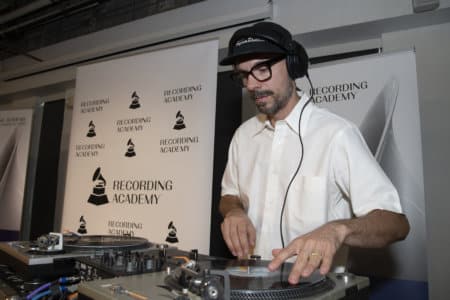
What do you think of when you hear the phrase “music from South Korea”? We bet that the first things that spring to mind are BTS, BLACKPINK, G-Dragon, or IU.
Everyone and their mother are either fans, know, or have heard of them.
But what about music from South Korea that do not fall under the K-pop category?
Hip-hop is now mainstream thanks to reality TV shows like “Show Me the Money” and “High School Rapper”, indie rock went global when Hyukoh and The Rose performed at Coachella, and trot (Korea’s oldest form of pop music) is now back with Lim Young-woong winning over younger audiences in the nation.
Then there is classical music – a genre that originated in Europe but now has Koreans winning at its version of the Grammys.
This was the boom Sumin Kim wanted in on. Her weapon of choice? The violin.

Sumin Kim was around four/five years old when she started playing music, immediately gravitated towards violin performance. Source: Sumin Kim
She was around four years old when she started playing, thanks to music classes in the kindergarten she attended.
“I liked playing instruments in general, mainly piano and violin. I was learning and playing both instruments, kind of like a hobby, until approximately 11 years old,” she says.
“I heard from adults and teachers telling my mum that I catch up on music quickly and have a good musical sense. [Because of that,] I decided to start learning more seriously, professionally, to prepare for music schools.”
Kim is among the lucky ones to have parents who support their child’s passion to pursue music.
“My mum was very into me pursuing music,” Kim says. “She was the one who was most excited when she found out that I had some talent in music. She found it very fascinating and wanted [this talent] to grow and make me a creative person.”
But the more Kim thought about pursuing music, the more doubts she had.
She had questions such as:
- “What is my ultimate destination after graduation?”
- “Where is my career going?”
- “What should I do for a job?”
Although Kim liked playing music, it was also important to her that she has a career that pays her well and consistently. Getting paid per project would not be ideal for her.
It got even harder when one of her favourite lecturers told the class that the music industry, especially as niche as classical music in Korea, is highly competitive. The auditioning process itself is hard, let alone playing for an orchestra.
“There is a saying that when one person in the orchestra passes away, only then would there be space for a new player to join the ensemble,” Kim says.
Even with this reminder, Kim is determined to take this gamble, even investing in an expensive education in violin performance in the US.
Then, something else grabbed her attention — she found a music business programme in the US.
“And I was very curious about it; maybe it might give me a hint or a pathway about my actual career,” she says.

Sumin Kim thought to pursue violin performance at NYU but decided to do music business instead. Source: Sumin Kim
Having prior experience in economics, plus her passion for violin performance, which she double majored in both at Ewha Womans University, music business is the perfect fit.
It helped that she had some stints with local companies too.
“It was mostly marketing, like posting on social media. I also did something unrelated to music – some education company in Korea needed marketing college assistance,” she says. “It was not a paid job, but it gets me one line in my résumé and a certificate of completion.”
And those prior work and certificates were what got her into New York University‘s MA, Music Business programme.
The programme taught Kim to apply business and administration theory within the music industry, including its ins and outs, from how it is structured and run to setting goals, making strategic decisions, and suggesting new ideas to help it grow.
“The first lecture I took at NYU was about music publishing and copyright, which I was interested in even before coming to this programme,” she says.
But it was the Emerging Models and Markets for Music class that she found most interesting.
“It is mostly a debating class,” she says. “The professor does the lecture while the students talk to each other about other music industries outside of the US, like in China, India, Africa, Europe, and nearly every continent around the world. Since I am from Korea, it inspired me to dive deeper into music in Korea that is not classified as K-pop.”
Today, she is using her master’s degree to work as an artist relations coordinator at Sync Musica, a music licensing company that represents music creators and their songs for sync placement in visual media such as film, TV, advertisement, and gaming.

Sumin Kim with singer-songwriter Ben Hulbert and fellow musician May Yu. Source: Sumin Kim
Now that she has a steady job, she can comfortably return to her true passion: playing the violin.
“I’m working on classical R&B jazz crossover music centred around violin performance, and I’m excited to see how it turns out,” she says. “I hope to finish and release it in the summer, hopefully.”
Kim is living proof that you can do both – secure a permanent job and pursue your passions. All you need is a little determination, aim, and a helpful support system to carry you through the ups and downs of your career trajectory.
“If you have a clear sense of purpose, then you can overcome the challenges,” she says. “My goal personally when coming here was to get a job after graduation, which I accomplished. And if you think you enjoy and are good at music or playing the instrument, then absolutely, do that!”










